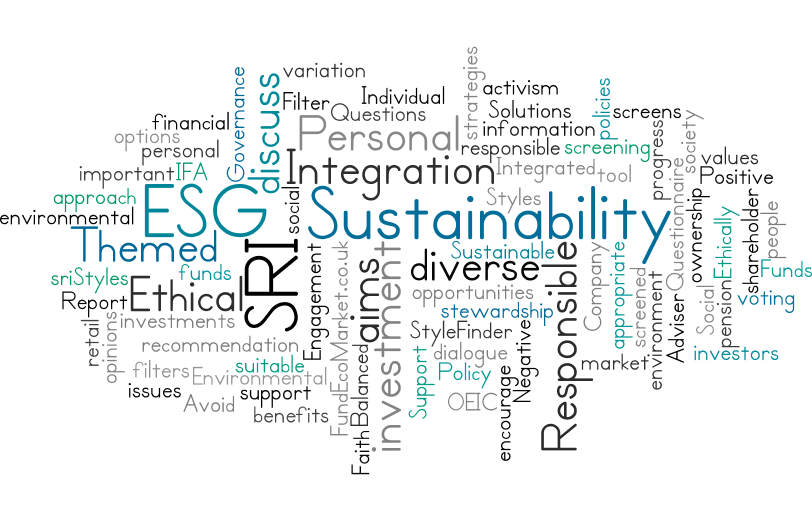Philanthropic Investments – Oxymoron or Win-Win?
Posted on: November 15th, 2012

Philanthropic Investments – Oxymoron or Win-Win?
An occasional criticism of SRI is that it blurs the lines between charity and investment. Having operated behind the scenes in SRI for many years I can emphatically say that this is not the case. For better or for worse SRI (which includes ethical funds) is about maximising returns within the parameters of fund strategies.
Yet there are areas of cross-over between investment and charities. Financial Institutions (particularly those active in SRI) have been known to put business muscle behind NGO campaigns – when there is a strong business case for doing so. And ‘values based’ issues are certainly important to many ethical investors.
Generally however investments and philanthropy are rightly kept separate, as this is what makes sense for most investors. Yet there is an emerging middle ground where philanthropy and conventional investment converge. This area is called ‘Impact Investment’. Such investments target both financial and social returns. Whilst not a true form of SRI, it is however a growing area that is likely to appeal to some SRI investors as well as the investment institutions that serve them.
Scope
I recently had the pleasure of meeting Vanessa Smye from Scope, a major charity which supports disabled people and their families – and a newer entrant to this market. Formerly an IFA, Ms Smye clearly understood that Impact Investments are not suitable for everyone.
Scope launched their corporate bond on the Luxembourg Stock Exchange (Euro MTF) in October 2011. The bond offers a 2% pa fixed return.
Invested money is used to fund income generating projects such as the expansion of Scope charity shops that generate a net profit, of typically well over £30,000pa. This profit is used to both support disabled people and – when applicable – to repay investors. A £50,000 investment enables them to open a new shop which in turn provides the income required to support around 60 additional families. As such the philanthropic case is clear.
Unsurprisingly, but in a welcome and honest fashion, Ms Smye made it clear that as a charity Scope would of course prefer to keep the money invested in the bond rather than have to ever repay it. However she went on to explain that that was neither their expectation nor their business model.
She and her employers are keen to get the message across that such investments can be attractive and that within a couple of years there will be sufficiently liquidity to repay bond holders. Yet these funds are not FSA authorised and of course not without risk. The Scope bond does however boast a highly credible range of advisers; their prospectus lists Lintakers, BNY Mellon, Capita and PWC amongst others. And they are working with Investing for Good, recognised leaders in social investment. They are also being supported by reputable investors such as Rathbones.
Impact Investment
So is this an emerging market or a one off? Impact Investment is growing and levels of activity are high. Strategies of this kind are being actively encouraged by the Charities Commission and according to Scope around nine other charities have similar plans in the pipeline.
Added variety may mean that this market may become increasingly useful to advisers seeking additional pizzazz for wealthier clients. Indeed, their transparency, in terms of what money is actually used for, may well be regarded as a welcome breath of fresh air. Also a socially oriented corporate bond investment such as this one may make an excellent counterbalance to an environmental EIS or clean tech holding – making this area potentially useful for ‘top end’ SRI type portfolio planning and investment management.
So what does this mean for advisers?
Impact Investment is growing (the first such investment was added to the Fund EcoMarket this summer once regulatory requirements were met). It is probably only ever likely to be suitable for Higher New Worth investors of course, but such people are increasingly becoming a core market for many financial advisers. Getting involved may require ‘gemming up’ on regulatory and other issues, but it if this makes sense for your client bank it could well be worth getting to know this market better.
So, to answer my own question ‘Oxymoron or Win-Win?’, this is not clear cut. For most investors this bond issue is probably utterly inappropriate. For others however it could be the investment that takes the client/adviser relationship to a whole new level. What is crucial therefore is the adviser, who has the pivotal role in differentiating between the two.
Fund EcoMarket adviser tool challenge:
I am currently considering how best to include investments of this kind into the Fund EcoMarket adviser tool.
My aim will be to raise awareness of this area in the adviser market whilst minimising the risk of attracting investment from people for whom such options are almost certainly inappropriate.
As these investments are likely to appeal to SRI investors, but are not SRI per se, they need to be treated differently in the Fund EcoMarket tool. My current solution is to use the term ‘Specialist’ (as an ‘SRI Style’ heading).
Because the Fund EcoMarket tool is ‘Adviser Only’ the implications should be clear and my hope is that this makes sense. My fear however is that it is too bland…
I would welcome readers’ views on this. Should Impact Investments be included and if so what terminology makes sense to you???
Please reply to Julia@sriServices.co.uk
NOTES
Scope is a major charity with a turnover of around £100 million pa.
Scope support around 500,000 disabled people and their families.
Many of the services provided by Scope is paid for by local authorities, although income is being squeezed as it is everywhere.
Contact Scope for further information on vanessa.smye@scope.org.uk
For further information see:
http://www.guardian.co.uk/business/2011/oct/31/scope-disability-charity-bond